
Do you have what you need to make your garden grow?


Garden Center
Store Hours
Mon-Sat:
6:00am - 10:00pm
Sun:
8:00am - 8:00pm
Curbside:
09:00am - 6:00pm
Location
Popular at Your Garden Center
Trending Garden Supplies in May
Trending Live Plants
Garden Project Calculators
;Resize=(703,395.44))
Grass Seed Calculator
When you're ready to seed your lawn, our calculator helps you estimate the amount of grass seed you'll need to get the job done.
;Resize=(703,395.44))
Mulch Calculator
Enter your preferred material, the square footage and mulch depth of the coverage space for accurate results.
;Resize=(703,395.44))
Fencing Calculator
We'll calculate the amount of fencing you should purchase based on your property needs.
Shop Outdoor and Garden Brands
Frequently Asked Questions About Gardening
What's my planting zone?
Check the USDA plant hardiness zone map, as planting zones have shifted slightly through the years. Planting zones with higher numbers can plant earlier in the year. Choose plants that are meant for your zone and increase your odds of gardening success.
Can I just put seeds in the ground?
If the soil is warm and pliable, consider planting your fruit, flower, or vegetable seeds directly into your garden. This is called the "direct sow" method. The time to plant will be after the threat of frost is gone for the season, as seedlings and sprouts can't weather those conditions. You can also start your seeds indoors if you'd like. Consult your seed envelope for how and when to sow seeds.
Do you carry organic seeds and plants?
Yes, we've got a variety of organic options, including organic veggie seeds and fruit seeds, as well as organic flower and herb seeds that are subject to availability. We also carry the organic fertilizer to feed your plants and the organic soil to plant them in.
Should I harden off my seedlings before planting them outside?
Yes, for best results, if you raised plants indoors from seeds in your own plant nursery, harden them before you transplant them. Hardening is the process of getting them used to the great outdoors and sun, rain, and temperature swings. It slows their growth until they're strong and ready to take off during a spring warm front. Hardening also makes your plants more resilient to a sudden cold snap. Speak to a garden center associate or read your seed packets for more info on caring for your tender seedlings.
What do I do before planting seeds or transplants outside?
Before you plant, make sure that the soil is healthy, your plant will have the right amount of sun, and it's warm enough outside. Check your seed package to see if it likes partial sun, full sun, or shade, as well as what time of year it should be planted. Space your plants as described on the seed envelope for best results so your plant babies have room to flourish.
Should I use peat moss starters or coir starters?
Seed starters, full of nutrients in convenient pellets or pots, work for new and experienced gardeners alike. You don't have to use these starters if you're planting in soil, but you may want to. Starting seeds in peat pots works best for delicately rooted plants like cucumbers and eggplant, as well as flowers that need acidic soil. Some people prefer coir starters instead, as they have a neutral pH. Check what type of soil your plants need to help narrow it down, and chat with a garden center associate if you need more info.
Garden Project Ideas
The Home Depot Garden Center at Hybla Valley
Celebrate Springtime Gardening
It's time to start thinking of spring. Sweep out the gazebo and clean the shed to prepare for sprouts poking up, fragrant breezes, and warmer temperatures. Planting seeds indoors means you'll be ready to transplant young veggie plants and spring flowers when the ground thaws and the frosts are through. You might even want to plant organic seeds directly into the earth. What better way to start than by exploring your favorite local plant nursery, The Home Depot Hybla Valley Garden Center?
Plant Hardiness Zones Explained
The first thing to learn when planting spring flowers, veggies, and other seeds is your planting zone. Every location in the U.S. and its territories is sorted by climate. Find your zone on the USDA zone map and learn when to plant seeds.
For example, you could transplant bell peppers outdoors in mid-March in Zone 10, but not until the end of May in Zone 4. You'll have good results with plants that have your zone number or less. In other words, a Zone 8 garden can support plants listed as Zones 1–8. The timeframe to direct sow outdoors in your garden is often around a month later than the indoor start date. Read your seed packet for details. If you start plants later than recommended, it's not ideal, but it should even out as time passes.
Gardening in Your Growing Zone
West Virginia, Kentucky, Tennessee, and Virginia are in Zones 6–8. Cruciferous veggies and certain herbs are ready to grow when you're ready to plant. This includes kale, cabbage, and broccoli. Greens like spinach and artichokes, early-blooming annuals like marigolds, and fragrant herbs, including basil, parsley, and oregano, also don't mind an early beginning. Even in the highest peaks of West Virginia in Zone 5b, traditional garden vegetables like peppers of all kinds, cucumbers, and tomatoes are fine with an early spring or late winter start indoors under the grow lights.
Look up the date of your last predicted frost, then count backward 6 to 8 weeks. That's the time you should sow your seeds indoors. The idea is to have strong baby plants that are ready for transplant at the same time the ground is warm enough. Do your best and enjoy the process — watching your plants grow, bloom, and put out tiny veggies that'll grow to harvest size is part of the fun.
Start Seeds Indoors
Save money when you grow your garden from seeds by starting them indoors in your own plant nursery. We've got all the seed starter supplies you'll need. Veteran planters and new gardeners alike should disinfect seed trays with a watered-down bleach solution before reusing them each year. When your pots or trays are prepared, plant your seeds. As for the soil, check to see if yours needs nutrient balancing. Choose fertilizers that match what you're growing. It'll help give your plants everything they need to grow big and strong.
Measure your finger to use it as a ruler. In general, you'll plant 3–5 seeds, then press them into the soil to the depth you need with your finger. Mark where you planted the seeds with a plant tag or toothpick. That way, you'll know where your seeds should pop up. Otherwise, it'll be a surprise when the sprouts push out of the soil.
Sprouts
When your seeds have sprouted but aren't ready to go outside yet, you can still prepare them for outdoor life. These inch-tall micro-seedlings are fragile but resilient. Seedlings don't get all this pampering in nature when they volunteer and grow wherever, so they can handle more than you think. However, don't go overboard, as your sprouts are still babies. You can even use an oscillating floor fan on low to mimic the wind and strengthen their stems.
Harden Your Seedlings
When you're hardening your sprouts and gradually introducing them to the outdoors, be flexible. Keep an eye on your baby plants. Bring them inside or move them to a shady spot if they're looking rough. As always, make sure they're watered enough but not drowning. Take wilted plants inside and give them a good drink, making sure they're strong before setting them outdoors again.
Transplant Young Plants Into Their New Homes
When your plants have three or four real leaves — different from miniature seedling leaves — it's time to transplant them. In quality soil, dig a hole the same size as the dirt plug where your transplant has been growing. If your ground soil isn't fantastic, dig a slightly bigger hole and fill the extra space with nutrient-rich topsoil. Apply fertilizer as directed. Only apply as much as recommended, as you could burn and kill the plant instead of helping it.
Protect Your Garden With Mulch
Finish your flower bed with compost and mulch. Compost enriches the soil so your garden can grow even better. It may help foster stronger plants that bear more flowers and fruit. Mulch keeps your soil from drying out and controls weeds. Compost and mulch can be purchased in-store or created at home. The next time you're looking for "mulch near me," stop by the Garden Center to get the right amount.
Greet the Spring
Late winter into early spring is an exciting time in the world of gardening. Plan your garden and landscaping, prepare to fertilize your lawn, and browse The Home Depot nursery to find inspiration on what to plant when the weather warms. For those without lawns, consider adding artificial grass or an outdoor rug to your outdoor space. Shop for the fertilizer, soil, and seeds you need in the aisles of your Hybla Valley Garden Center, online, or on our mobile app. Let's get growing together.
Nearby Stores
Find Another Store
400 S Pickett St
Alexandria, VA 22304
4.59 mi
Mon-Sat: 6:00am - 10:00pm
Sun: 8:00am - 8:00pm
6691 Frontier Rd
Springfield, VA 22150
4.81 mi
Mon-Sat: 6:00am - 10:00pm
Sun: 8:00am - 8:00pm
6555 Little River Tpke
Alexandria, VA 22312
6.45 mi
Mon-Sat: 6:00am - 10:00pm
Sun: 8:00am - 8:00pm
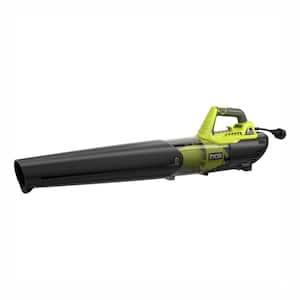
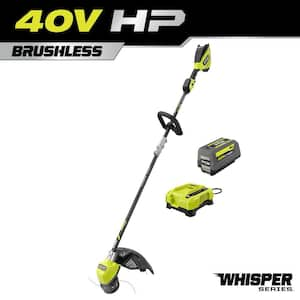
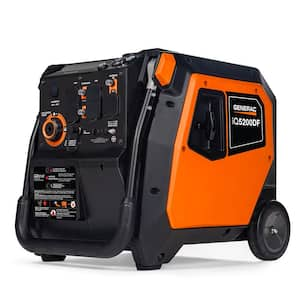
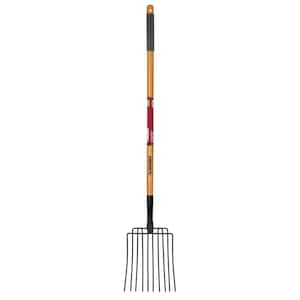
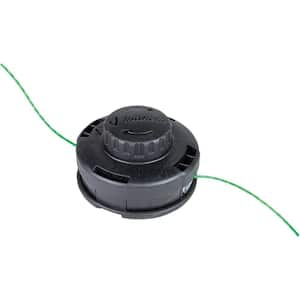
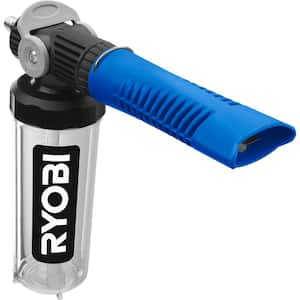
)
)
/17_514245_S_012_Product%20Image%20(square).jpg?im=Resize=(300,300))
;Resize=(300,300))
)
)
)
)
)
/2023_P2_Rain_Barrels_Product%20Image%20(square).jpg?im=Resize=(300,300))
)
;Resize=(300,300))
;Resize=(300,300))
;Resize=(300,300))
/12_SOIL_B_0420_Social%20media%20(square).jpg?im=Resize=(300,300))
;Resize=(300,300))
)
)
;Resize=(300,300))
;Resize=(300,300))
;Resize=(300,300))
;Resize=(300,300))
)
)
;Resize=(300,300))
;Resize=(300,300))
;Resize=(300,300))
;Resize=(300,300))
;Resize=(300,300))
)
/18Patio_Camden_Seagrass_5pcSeating_Planters_302468736_DTL3_L_Social%20media%20(square).jpg?im=Resize=(300,300))
;Resize=(300,300))
;Resize=(300,300))
;Resize=(300,300))
)
;Resize=(300,300))
;Resize=(300,300))
)
;Resize=(300,300))
)
.jpeg?im=Crop,rect=(363.69230769230774,1.2307692307692308,958.7692307692308,958.7692307692308);Resize=(300,300))
;Resize=(300,300))
)
;Resize=(300,300))
;Resize=(300,300))
)
;Resize=(300,300))
)
)
;Resize=(300,300))
;Resize=(300,300))
)
)
;Resize=(300,300))
)
;Resize=(300,300))
;Resize=(300,300))
)
)
;Resize=(300,300))
)
)
/Capello_Spring_Mum_10in_Social%20media%20(square).jpg?im=Resize=(300,300))
;Resize=(300,300))
)
)
;Resize=(300,300))
)
)
;Resize=(300,300))
)
)
;Resize=(300,300))
;Resize=(300,300))











































